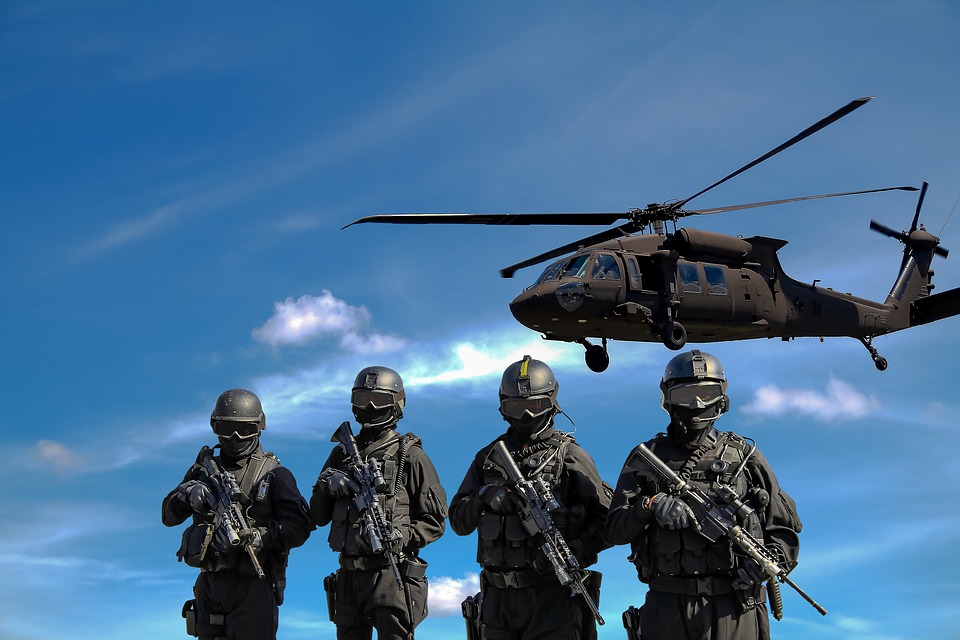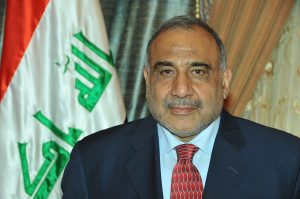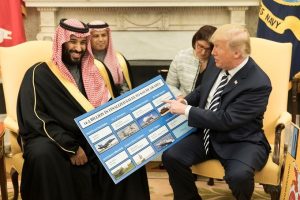by William D. Hartung
This week the government of the United Kingdom is hosting a conference of leaders in business, government, and civil society aimed at tackling the urgent problem of global corruption. The conference’s stated goals are ambitious: to “expose corruption so there is nowhere to hide,” “punish the perpetrators and support those affected by corruption,” and “drive out the culture of corruption wherever it exists.”
One issue that is ripe for attention is the effect corruption has on military aid programs. Providers of such assistance need to take more care to ensure that their partners are not subverting the purpose of these programs by engaging in corrupt practices.
U.S. military aid programs are a case in point. According to data compiled by the Security Assistance Monitor, this year the United States is providing over $8 billion in arms and training to 50 of the 63 nations that Transparency International has identified as being at “high” or “critical” risk of corruption in their defense sectors.
The major cases of corruption in military assistance are well known. For example, in both Iraq and Afghanistan, military commanders have pocketed salaries of “ghost soldiers”—personnel who are listed as being on active duty but either don’t exist or aren’t in the armed forces at all. This not only leads to undermanned security forces, but it undermines morale among soldiers who are serving. This is drain on combat effectiveness has diminished the capacity of these forces to carry out critical fights against the Islamic State (ISIS or IS) and the Taliban.
Afghanistan and Iraq are not the only places where corruption has hobbled efforts to provide basic security. A task force organized by the Carnegie Endowment for International Peace has noted that “acute, structured government corruption” has helped spawn terrorism, conflict, or rebellion in nations as diverse as Yemen, Egypt, Nigeria, and Ukraine. All too often, corruption is the rule, not the exception.
Widespread corruption poses other serious challenges to providers of military assistance. There is a danger that tilting aid too heavily toward the defense sector can strengthen it at the expensive of civilian institutions, undermining civilian control of the military. There is a significant risk that this may be occurring among key recipients of U.S. security assistance. The Security Assistance Monitor’s assessment of dependence on U.S. military aid demonstrates that, for 2014, U.S. military aid accounted anywhere from 15% to 20% of defense expenditures of recipient countries like Egypt, Pakistan, and Burundi; over 50% in Liberia; and over 90% in Afghanistan.
A major impediment to combatting corruption in military aid is the lack of transparency regarding aid programs in the supplying countries. In the United States, for example, military aid programs rapidly proliferated in the 2000s. Of particular concern are the well over two dozen such programs funded and implemented by the Pentagon. There is no systematic reporting to Congress on these programs, so it is difficult to determine how many countries are recipients, what type of aid they receive, what the aid is intended to accomplish, and whether the programs have been effective. The Security Assistance Monitor maintains the most comprehensive tracking of U.S. military and police aid, but this invaluable data is no substitute for detailed reporting on the part of the U.S. government. Absent greater transparency, it is extremely difficult to assess the extent and role of corruption in U.S. security assistance programs.
Corruption in military aid programs is not inevitable. A greater focus on governance and anti-corruption practices in the provision of military training can be one useful tool in stemming corruption. In fact, it appears that the Department of Defense is slowly increasing some anti-corruption training to foreign militaries. However, in more critical cases, a temporary suspension of security aid may be necessary to force recipient militaries to clean up their acts.
Corruption in defense assistance programs is about more than just a diversion of funds. It is also a threat to local, regional, and global security. Any effort to reduce global corruption must make cleaning up corruption in military aid programs a top priority.
William D. Hartung is the director of the Arms and Security Project at the Center for International Policy and a senior advisor to the Security Assistance Monitor.






You’d have thought that US bankrolling of the illegal military occupation of Palestine, including the war crimes committed by the IDF, would figure prominently in this report.